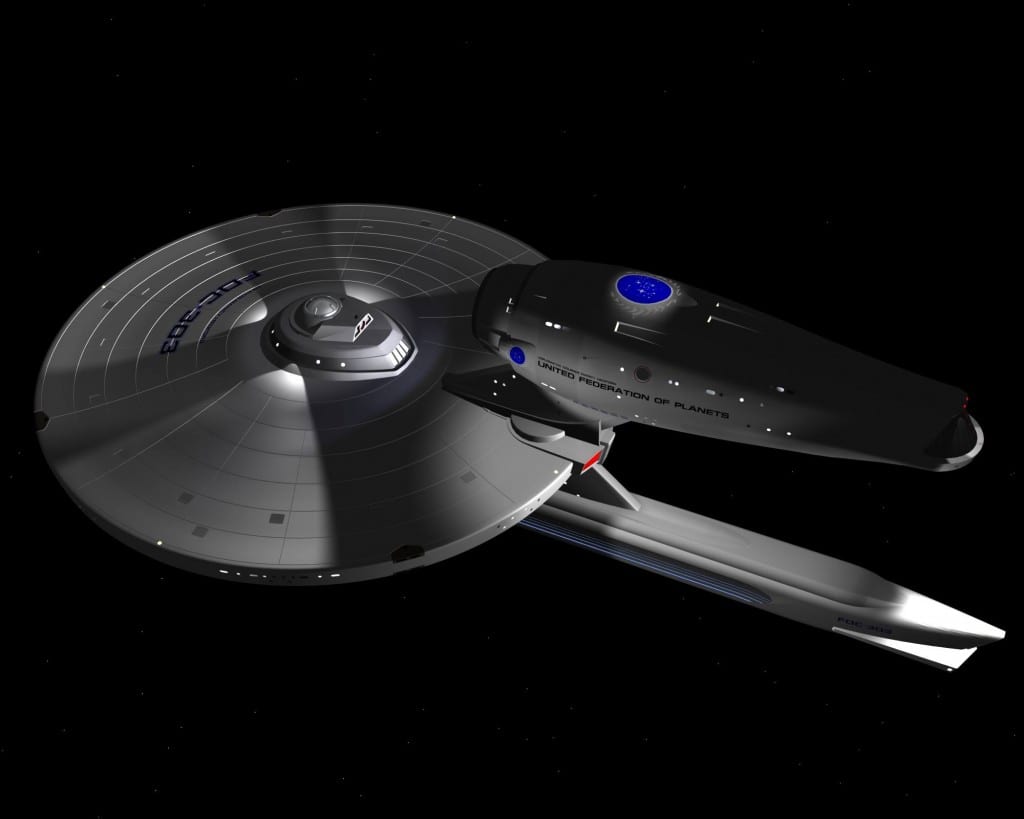INTAR SYSTEM — In what is being called a blatant violation of the Deneb Conventions on Diplomatic Relations, the diplomatic vessel Nancy Hedford came under attack and was boarded by Tzenkethi forces.
The Daystrom Institute is in mourning today as word hit the Federation Subspace Network that two of its most prominent researchers had been killed in a boarding action carried out by what the Tzenkethi government is calling “a renegade crew.”
“If those were renegades, I’m a donkey’s [expletive deleted]!” Vice Admiral Charles Haywood, serving his terminal billet as commander of the Federation Diplomatic Courier Nancy Hedford, answered when asked about the Tzenkethi government’s claim, using his trademark flowery language.
“They knew we were carrying an ambassador and half his team to Intar,” he continued. “That alone would give them reason to attack. We all know they only uphold the Deneb Accords when it suits their purposes. Lord knows, this isn’t the first time they’ve tried to attack diplomatic missions. It was just bad luck that our only escort was a fighter squadron instead of the destroyer that’s usually sent as an escort.”
Walter Eve, the Federation’s first official ambassador to the Three Peoples, had a similar, though more diplomatic, response.
“Diplomats have always been seen as targets by those who believe violence is the only path to an end,” he said. “From Surak to Rowcroft to Stevens and even to Gorkon, those who work toward peace are just as often seen as a threat to those who seek or profit from war. I’m just glad I didn’t join that so very long and tragic line—though a man I consider a dear friend did.”
That “dear friend” was Academician Sapok, author of the Temporal Uncertainty Theory, which he recently admitted was wrong, having been refuted by Ambassador Elmlinger thirty-two years ago. The other victim of the Tzenkethi attack has been identified as Dr. Peter Eden, one of the Federation’s leading experts on Preserver artifacts.
“I can’t help thinking it was my fault,” said Dr. Karen Mercer, a long-time friend and colleague to Eden, during a recent interview. “By rights, he should have been leading his own team by now. If I hadn’t insisted he come along…”
As for Sapok’s family, they displayed typical Vulcan calm when interviewed via subspace, courtesy of Gwalior Base.
“One often fails to realize that all professions hold the possibility of danger,” T’Lia, Sapok’s eldest daughter, commented. “We can but be consoled that Sapok met his end in defending his colleagues and the crew of the Nancy Hedford.”
Other researchers expressed how the deaths were a tragic loss to the scientific community of Intar and beyond.
“I was looking forward to working with Sapok. Even though one of what had to be his crowning achievements had been disproven, he still had a list of accomplishments no scientist on this planet has ever amassed,” said Dr. Jodh Undarum, Chair of Archaeology at Citadel University. “And Dr. Eden would have brought knowledge to Intar that we may never be able to recover. Not just the Federation but the Three Peoples lost two of the greatest minds known.”
In honor of the two slain scientists, the Kentari National Museum will rename their archaeology laboratory the Eden-Sapok History and Archaeology Center.
As is the custom at the Daystrom Institute, a memorial service will be held to add a stone for each of the men to the Gardens of Remembrance at the Prime Campus on Rigel III and at the Institute’s Archaeological Council’s facility on Earth.
This is a reader-submitted article and the fourth in a series based on the Star Trek: Citadel continuity. A fan-fiction project by John H. Harris, Star Trek: Citadel explores contemporary themes through the idea of a world where nearly everyone is what we would consider overweight.
Want to Write Your Own Star Trek Stories?
The Federation News Service is written by members of StarBase 118, a Star Trek play-by-email RPG running since 1994. Join us and create your own adventures in the Star Trek universe — all you need is an email address.
Join StarBase 118 TodayOr explore free Star Trek ebooks written by our community → trekstories.net
Stay Informed with Federation News Service
Subscribe to receive the latest updates from across the Federation.
Comments
comments

